Foogal, a recipe app designed to support patients’ healthy cooking and eating, launched on 24th March. In its initial version, Foogal addresses several specific diet paradigms: for patients demanding a wellness protocol, an autoimmune protocol, or wanting to address insulin resistance.
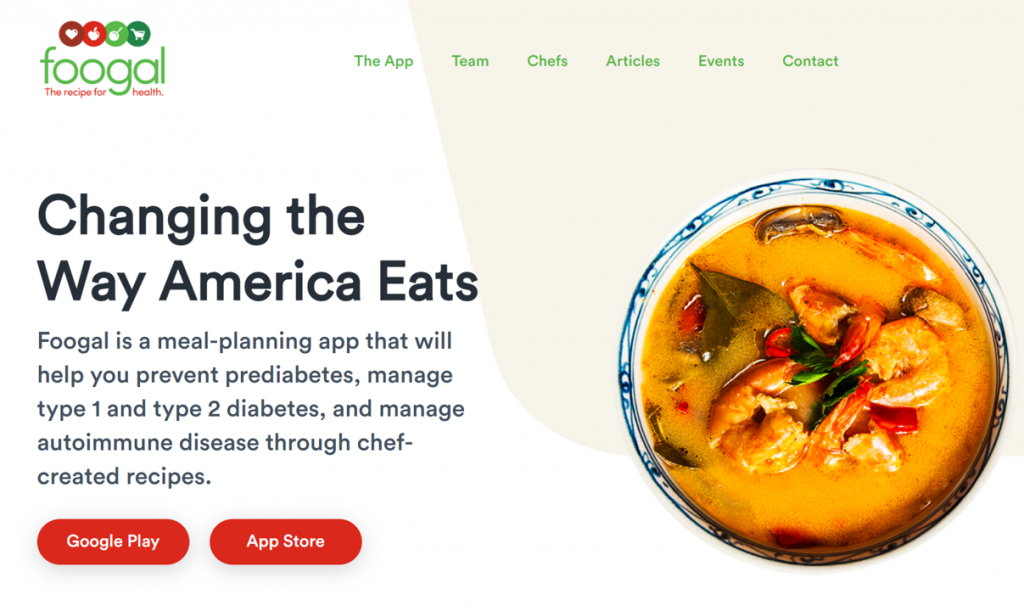
Foogal got my attention via a tweet @FoogalApp on 25th March. The snippet featured a photo of a delectable Salad Lyonnaise, one of my favorite things to eat, which adds a soft-cooked egg and bacon lardons to the greens for an easy light (and delicious!) meal.
Foogal was developed by Todd Knobel, who has worked in law, in plastics, and in various entrepreneurial ventures. He is collaborating with Dr. Robert Lustig as Chief Medical Officer, a pediatrician well-known for his evangelism about the deleterious role of sugar in the human diet. (Sidebar: Dr. Lustig’s book, Metabolical, is must-reading if you are keen to better understand the interrelationship between nutrition, metabolism, inflammation, and immunity).
The philosophy underneath Foogal is that “Our health is in our hands,” and the best medicine we have is food.
There is a four-fold mission behind Foogal, set out in the second graphic.
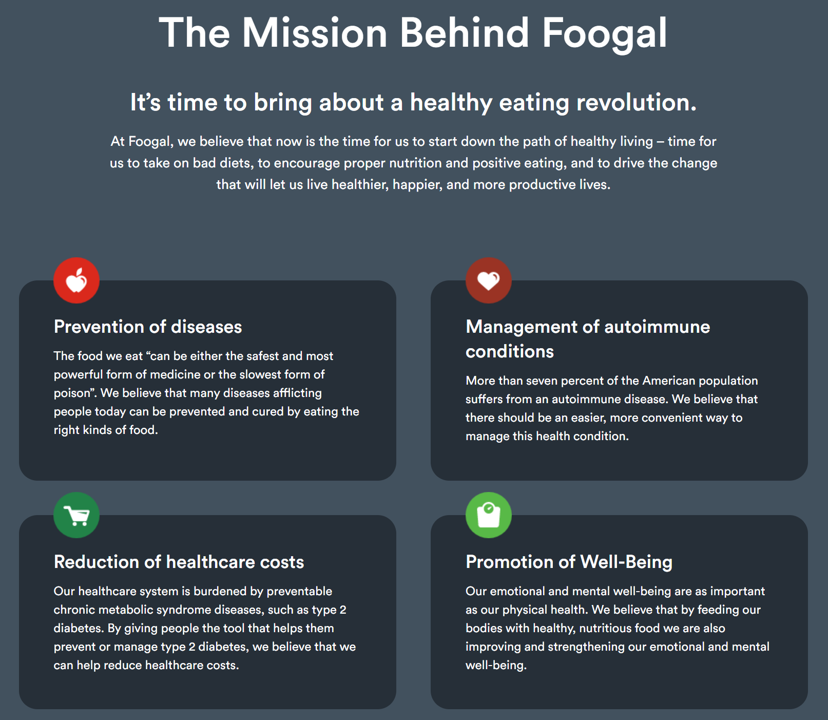 These are to prevent disease, to reduce health care costs, to manage autoimmune conditions, and to promote well-being.
These are to prevent disease, to reduce health care costs, to manage autoimmune conditions, and to promote well-being.
There have been scores of food and nutrition mhealth tools available in app stores for over a decade. But Foogal’s messaging and mission mash-up some differentiating factors.
Most notably, Foogal is promoting the importance of home-cooked meals for families — coining itself as an “easy-to-use family planner” too — enabling healthy recipes served up in the app based on user preferences and medical needs.
For example, say you opt into the insulin resistance protocol. When signing into Foogal, you would see healthy recipes in line with people dealing with pre0diabilities, Type 1 diabetes, or Type 2 diabetes. I saw a few scrumptious recipes in this protocol such as beer-braised beef stew and stuffed chicken breasts, and others for the autoimmune and wellness areas — largely based on Mediterranean/DASH foodstyles which are a go-to for heart-health.
A key objectives of Foogal is to support people in making good food purchasing and cooking decisions, so they have begun to partner with Kroger, the grocery chain, envisioning other such food system partnerships.
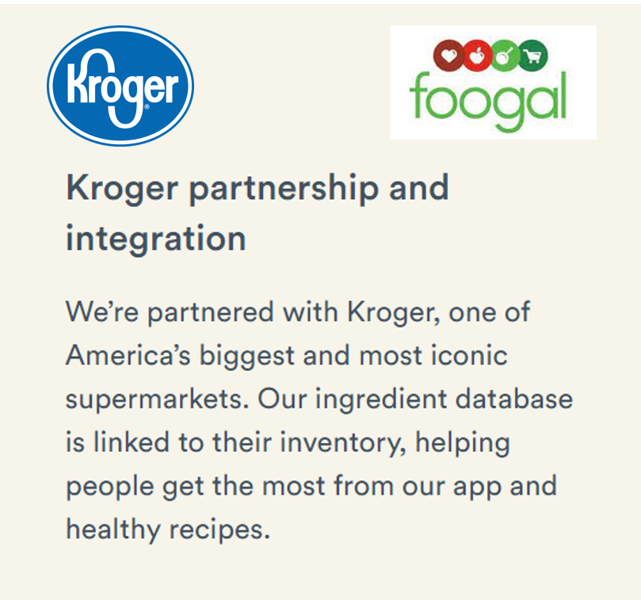 Kroger is among the largest grocery chains in the U.S., with many supermarket banners including Ralphs, Dillons, Smith’s, King Soopers, Fry’s, QFC, City Market, Owen’s, Jay C, Pay Less, Baker’s, Gerbes, Harris Teeter, Pick ‘n Save, Metro Market, Mariano’s, Fred Meyer, among others.
Kroger is among the largest grocery chains in the U.S., with many supermarket banners including Ralphs, Dillons, Smith’s, King Soopers, Fry’s, QFC, City Market, Owen’s, Jay C, Pay Less, Baker’s, Gerbes, Harris Teeter, Pick ‘n Save, Metro Market, Mariano’s, Fred Meyer, among others.
Like all food chains, the company is growing its role in ecommerce and tech-enabled food retail, bolstered through consumer engagement via apps like Foogal’s.
Users of the Foogal app browse recipes based on health preferences; once a meal plan is created, the app generates a shopping list linking to a Kroger supermarket linked online.
This streamlines the health consumer’s journey toward nutrition: first, learning about healthy food choices based on a selected protocol; second, researching healthy recipes searchable on the app; third, creating a shopping list linked to the grocer’s ecommerce platform, which then creates an order that is shipped to the consumer’s home.
Kroger, like most of the largest food chains, has grown their wellness and health portfolio. I wrote about the company’s approach to food-as-medicine here in Health Populi in 2019 when Kroger Health began to message and market itself as a trusted health and wellness destination,
Health Populi’s Hot Points: Over the 3 decades I’ve advised health care stakeholders across the ecosystem, I’ve benefited from working with health care providers, health plans, Big Food companies, pharma and life science companies, technology, and patient advocacy organizations. For many years, I’ve advocated for siloes to break down so that these organizations, all of which have mission statements that speak to benefit patient care and health outcomes, to more effective reach those Holy Grails.
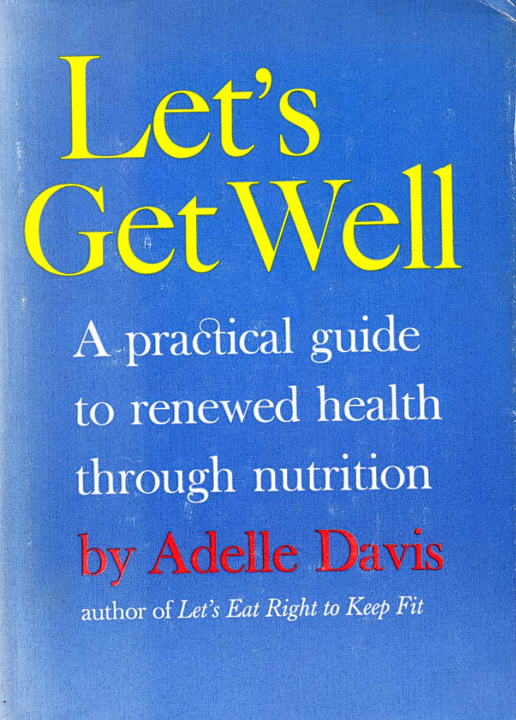 When it comes to food, the benefits of nutrition to support human (and animal) health have been part of my professional mindset since my personal one was informed by my own mother’s journey into nutritional support for cancer in the early 1970s — largely through her adoption of the work of Adelle Davis, Mom devoured Davis’s books, and particularly Let’s Get Well, to help bolster her immune system and energy. This is the well-worn dust jacket of the copy I inherited from Polly, which was signed as a gift to her by her older sister, Tillie Levine, who was part of Polly’s social network for health and well-being.
When it comes to food, the benefits of nutrition to support human (and animal) health have been part of my professional mindset since my personal one was informed by my own mother’s journey into nutritional support for cancer in the early 1970s — largely through her adoption of the work of Adelle Davis, Mom devoured Davis’s books, and particularly Let’s Get Well, to help bolster her immune system and energy. This is the well-worn dust jacket of the copy I inherited from Polly, which was signed as a gift to her by her older sister, Tillie Levine, who was part of Polly’s social network for health and well-being.
In my work — especially with pharma companies over these many years — I’ve often brought food into our strategic discussions about new drug launches, patient support programs, and even pricing in managed markets discussions. In one instance, I asked a managed markets team if, in their meetings with formulary developers in Medicaid program negotiations, they had ever asked to convene with representatives from the state’s SNAP or food support program. This was met with a range of responses, from smirks and cynicism to surprise and questions of, “why?”
Today, that sentiment is, thankfully, less prevalent.
With Foogal, and earlier apps and digital tools that put food smarts into health consumers’ hands, we can support patients’ self-care that more seamlessly and effectively enables people to bring together work-flows and life-flows that, together, can bolster and benefit their health and prognoses.
I am hopeful that food-as-medicine, turbocharged through food support programs and digital tools, can take its rightful place in patient care and food and app prescriptions.


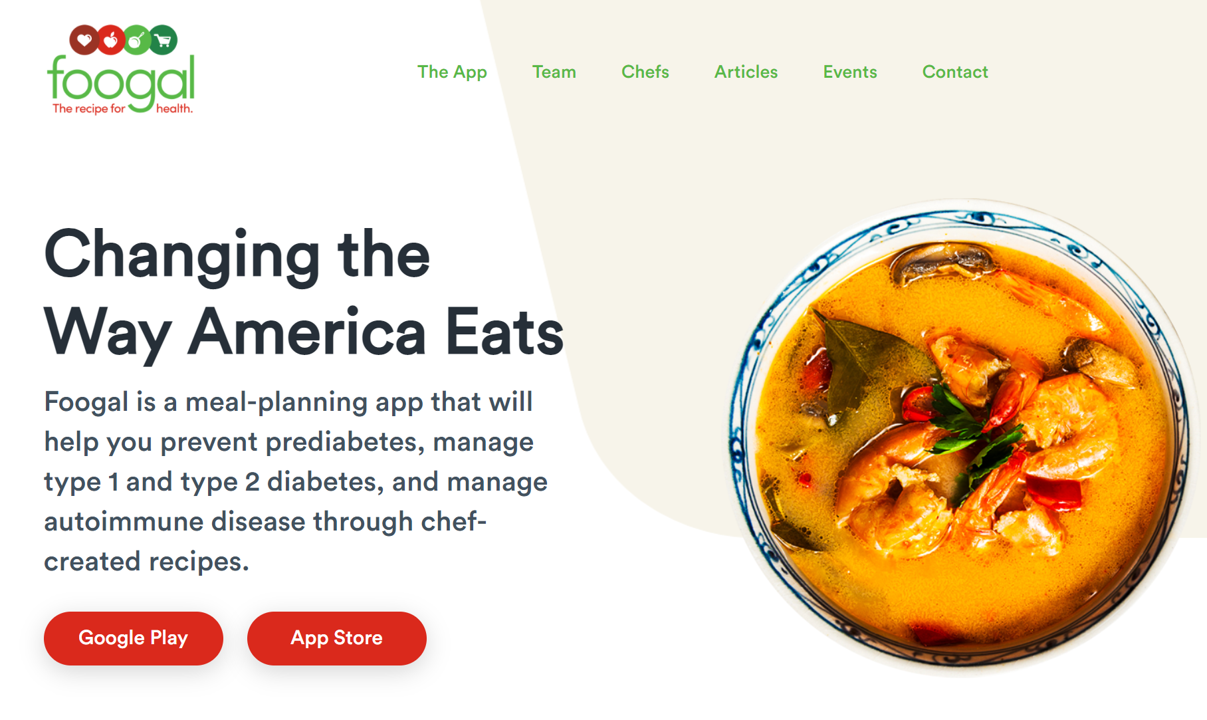


 I am so grateful to Tom Lawry for asking me to pen the foreword for his book, Health Care Nation,
I am so grateful to Tom Lawry for asking me to pen the foreword for his book, Health Care Nation,  I love sharing perspectives on what's shaping the future of health care, and appreciate the opportunity to be collaborating once again with Duke Corporate Education and a global client on 6th May. We'll be addressing some key pillars to consider in scenario planning such as growing consumerism in health care, technology (from AI to telehealth), climate change, and trust -- the key enabler for health engagement or dis-engagement and mis-information. I'm grateful to be affiliated with the corporate education provider
I love sharing perspectives on what's shaping the future of health care, and appreciate the opportunity to be collaborating once again with Duke Corporate Education and a global client on 6th May. We'll be addressing some key pillars to consider in scenario planning such as growing consumerism in health care, technology (from AI to telehealth), climate change, and trust -- the key enabler for health engagement or dis-engagement and mis-information. I'm grateful to be affiliated with the corporate education provider  Thank you FeedSpot for
Thank you FeedSpot for